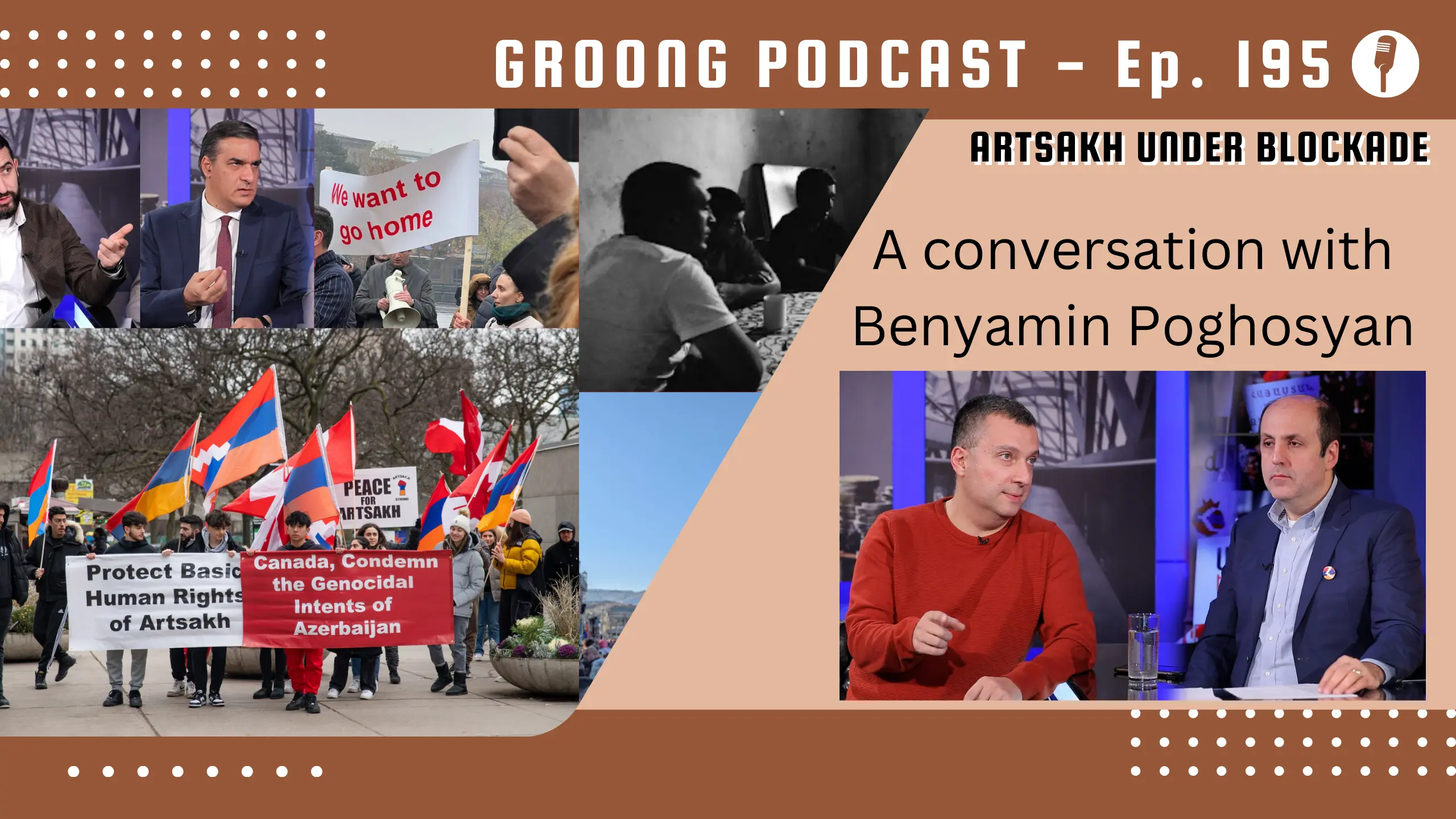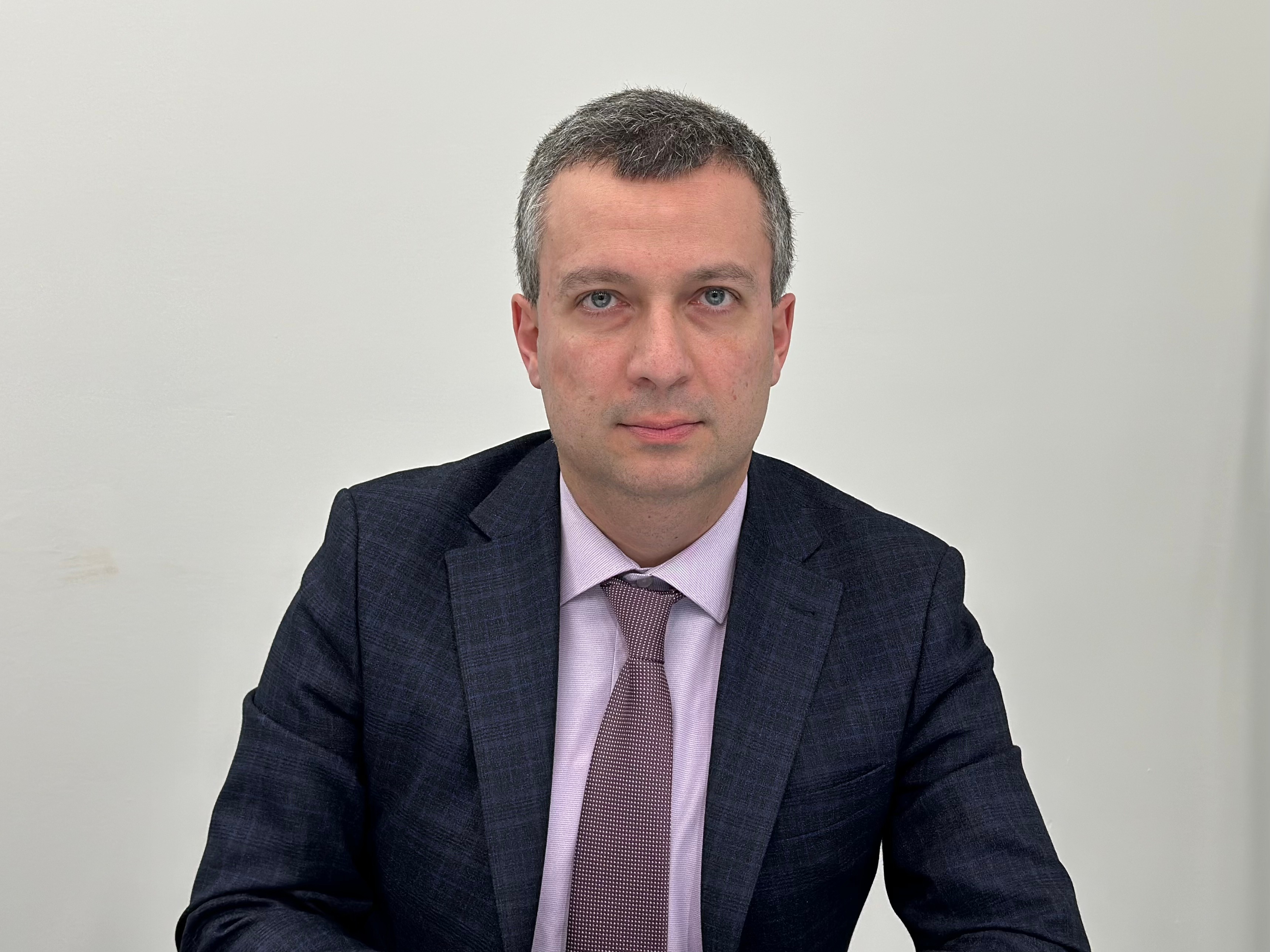
Guest:
- Benyamin Poghosyan, Chairman of the Yerevan based think tank Center for Political and Economic Strategic Studies.
“Aliyev’s strategy is ’no Armenians, no problems’. What is our strategy?” -Benyamin Poghosyan
Topic:
More than 120,000 people remain trapped in the Republic of Artsakh (or Nagorno-Karabakh) due to Azerbaijan’s blockade of the Lachin corridor, as this crisis enters its 16th day.
This interview is a continuation of the collaboration between Groong and 168 Hours aiming to bring you more English-language coverage on the developments of this very serious humanitarian crisis in progress.
Links:
- 168 Hours: https://168.am
- Groong: https://podcasts.groong.org
Episode 195 | Recorded: December 27, 2022
Show Notes
Discussion
Azerbaijan’s Strategy
Benyamin, you’re probably one of the most frequent guests of our podcast and I remember having many conversations with you regarding the geopolitical developments between Azerbaijan and Armenia since the end of the 44 day war.
When a year ago you were telling us that the government in Armenia believes “that Artsakh is lost and the maximum that these people can hope for is to live in de-jure Azerbaijan but de-facto Russian controlled protectorate”, part of me didn’t want to believe that despite the writing on the wall.
Well right now, Russian troops are still in Artsakh, but for more than 2 weeks, citizens of the Armenian 2nd republic are under siege and blocked in.
So, can you tell us what you think Azerbaijan’s plan maximum and plan minimum are in all of this? Obviously coercive negotiation tactics are being employed, but what I want to know is:
- Who is the target? Artsakh or Armenia?
- What are the specific goals? Forgetting about status or perhaps corridors through Syunik?
- Who is doing the coercion? Azerbaijan, Turkey, Russia, or any combination of those?
Relations with the West
While the relations with Russia have been tanking, Armenia is publicly making gestures towards the west. At least in words, there’s a lot of support for Armenia by Western powers. It was interesting to read the words of the Czech ambassador to Armenia who said:
_“...we, as Europe and the Czech Republic, haven’t abandoned Armenia…It doesn’t mean that we are going to save you, that’s what you need to understand and what I want to emphasize. We are not going to save you, you know. But we are going to do our best to help you get over this mess.”_
French parliamentarian Valerie Boyer, a staunch supporter of Armenia and Artsakh lamented:
_“Why did we hold Francophonie in Yerevan. Why did we tell Armenians that they’re our brothers and sisters, when we were going to let them remain alone with their dictatorial neighbors?”_
So I’m guessing a lot of words of encouragement, concern, thoughts and prayers from the West. But no weapons! However, as you know, the spy chiefs from both the US, as well as the UK have recently visited Yerevan. Richard Moore, the head of MI6 met with Pashinyan on December 16. Notably this interaction was between Moore and Pashinyan alone.
- What is the West’s offer to ensure the security of Armenia?
Predictions
I know giving predictions is a thankless task. However, as it is end of year I have to ask, what does the future hold for the war in Ukraine and for the region?
Wrap-up
We hope you found our Conversations on Groong helpful, we invite your feedback and your suggestions. You can find us on most social media and podcast platforms. Thanks to Laura Osborn for the music on our podcasts.
Guests

Benyamin Poghosyan
Dr. Benyamin Poghosyan is a Senior Research Fellow at APRI Armenia, a Yerevan based think tank,and the Chairman of the Center for Political and Economic Strategic Studies. He has served as the vice president for research and head of the Institute for National Strategic Studies at the National Defense Research University in Armenia. Dr. Poghosyan was a Distinguished Research Fellow at the US National Defense University College of International Security Affairs. He is a graduate from the US State Department Study of the US Institutes for Scholars 2012 Program on US National Security Policy Making. He holds a PhD in history and is a graduate from the 2006 Tavitian Program on International Relations at Fletcher School of Law and Diplomacy.
Hosts

Hovik Manucharyan
Hovik Manucharyan is an information security engineer who moved from Seattle to Armenia in 2022. He co-founded the ANN/Groong podcast in 2020 and has been a contributor to Groong News since the late 1990s.
Disclaimer: The views expressed by Hovik Manucharyan on the ANN/Groong podcast are his own and do not necessarily reflect the opinions of his employer or any other organization.